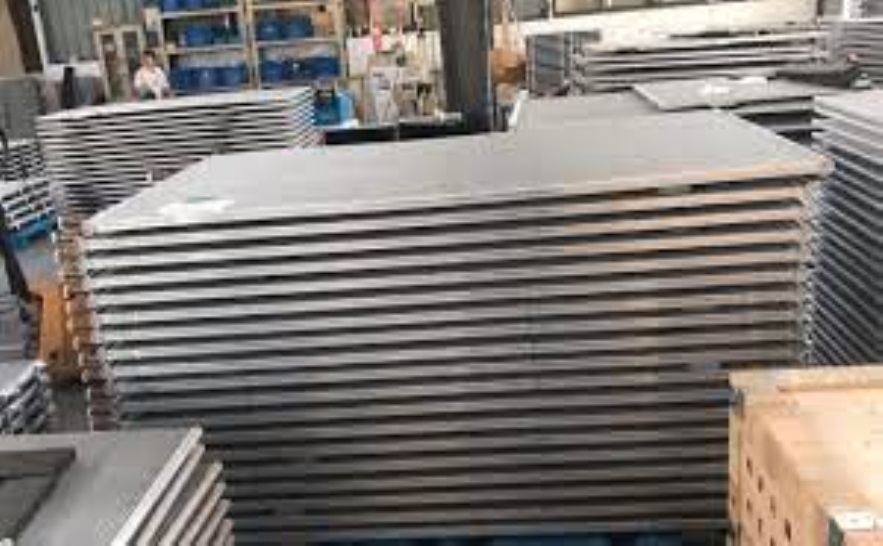In the intricate tapestry of industrial equipment, the role of a microchannel heat exchanger manufacturer is pivotal. These specialized manufacturers are at the forefront of providing cutting-edge solutions for efficient thermal management across diverse industries. In this article, we will explore the significance of microchannel heat exchanger manufacturers, examining their key attributes, the manufacturing process, and the impact they have on the industrial landscape.
The Essence of Microchannel Heat Exchanger Manufacturers
A microchannel heat exchanger manufacturer is a key player in the realm of industrial thermal solutions. Their expertise lies in designing and producing microchannel heat exchangers, specialized devices that facilitate the transfer of thermal energy between fluid streams with unparalleled efficiency. These manufacturers play a crucial role in meeting the growing demand for compact, efficient, and reliable thermal management solutions across various industries.
Key Attributes of Microchannel Heat Exchanger Manufacturers
Engineering Excellence: Manufacturers in this niche exhibit a high degree of engineering expertise. The intricate design of microchannel heat exchangers requires precision and innovation to optimize heat transfer efficiency while ensuring a compact and reliable product.
Materials Mastery: The selection of materials is a critical aspect of microchannel heat exchanger manufacturing. Manufacturers often use advanced materials such as aluminum and copper alloys known for their exceptional thermal conductivity. This ensures the durability and optimal performance of the heat exchangers.
Customization Capability: Recognizing the diverse applications across industries, microchannel heat exchanger manufacturers often offer customization options. This allows them to tailor their products to specific requirements, considering factors such as temperature ranges, flow rates, and space constraints.
Quality Assurance: Given the critical nature of microchannel heat exchangers in industrial processes, manufacturers prioritize quality assurance. Rigorous testing procedures and adherence to industry standards are fundamental to ensuring the reliability and longevity of their products.
The Manufacturing Process of Microchannel Heat Exchangers
The production of microchannel heat exchangers involves a series of specialized processes, each contributing to the overall efficiency and effectiveness of the final product.
Design and Engineering: The process begins with meticulous design and engineering. Manufacturers leverage computer-aided design (CAD) software to create precise blueprints, considering factors such as channel dimensions, material selection, and overall heat transfer characteristics.
Material Selection: The choice of materials is a critical decision in the manufacturing process. Aluminum and copper alloys are commonly used for their thermal conductivity, corrosion resistance, and lightweight properties.
Microfabrication Techniques: Microchannel heat exchangers are characterized by their small channels, typically on the micrometer scale. Microfabrication techniques, including etching, stamping, or laser cutting, are employed to create the intricate network of channels.
Assembly and Welding: The individual components, including the microchannel structure and headers, are assembled and welded together. Precision is paramount in this step to ensure airtight seals and structural integrity.
Quality Testing: Rigorous quality testing follows the assembly process. Manufacturers employ various methods such as pressure testing, thermal cycling, and performance validation to ensure that each microchannel heat exchanger meets the specified standards.
Applications Across Industries
Microchannel heat exchanger manufacturers cater to a wide array of industries, showcasing the versatility and adaptability of their products.
Automotive Industry: Manufacturers provide microchannel heat exchangers for automotive cooling systems, contributing to efficient heat dissipation in engines and electric vehicle batteries.
Electronics Cooling: In the electronics industry, microchannel heat exchangers play a vital role in preventing overheating, ensuring the reliability and longevity of electronic components.
HVAC Systems: Heating, ventilation, and air conditioning systems benefit from the compact design and enhanced heat transfer capabilities of microchannel heat exchangers, leading to energy savings and improved overall system performance.
Renewable Energy Applications: Microchannel heat exchangers are integral components in various renewable energy systems, including solar thermal and geothermal applications, contributing to efficient energy harnessing.
The Impact on Industrial Thermal Management
Microchannel heat exchanger manufacturers have a profound impact on industrial thermal management by providing solutions that address the evolving needs of modern industries.
Efficiency Enhancement: The efficiency of microchannel heat exchangers contributes to overall system efficiency, allowing industries to achieve optimal thermal performance in a space-efficient manner.
Space Optimization: The compact design of microchannel heat exchangers allows industries to optimize space, a crucial factor in applications where real estate is limited.
Energy Savings: The enhanced heat transfer efficiency of microchannel heat exchangers leads to energy savings, aligning with the global push towards sustainable and energy-efficient industrial practices.
Reliability and Longevity: Manufacturers ensure that their products meet rigorous quality standards, providing industries with reliable and durable solutions for thermal management challenges.
Conclusion
In conclusion, microchannel heat exchanger manufacturers are at the forefront of driving innovation in industrial thermal management. Their engineering excellence, materials mastery, customization capability, and commitment to quality assurance make them essential partners for industries seeking efficient and reliable thermal solutions. As the demand for compact and high-performance thermal management systems continues to grow, the role of microchannel heat exchanger manufacturers is poised to become even more significant in shaping the future of industrial processes.








Comments